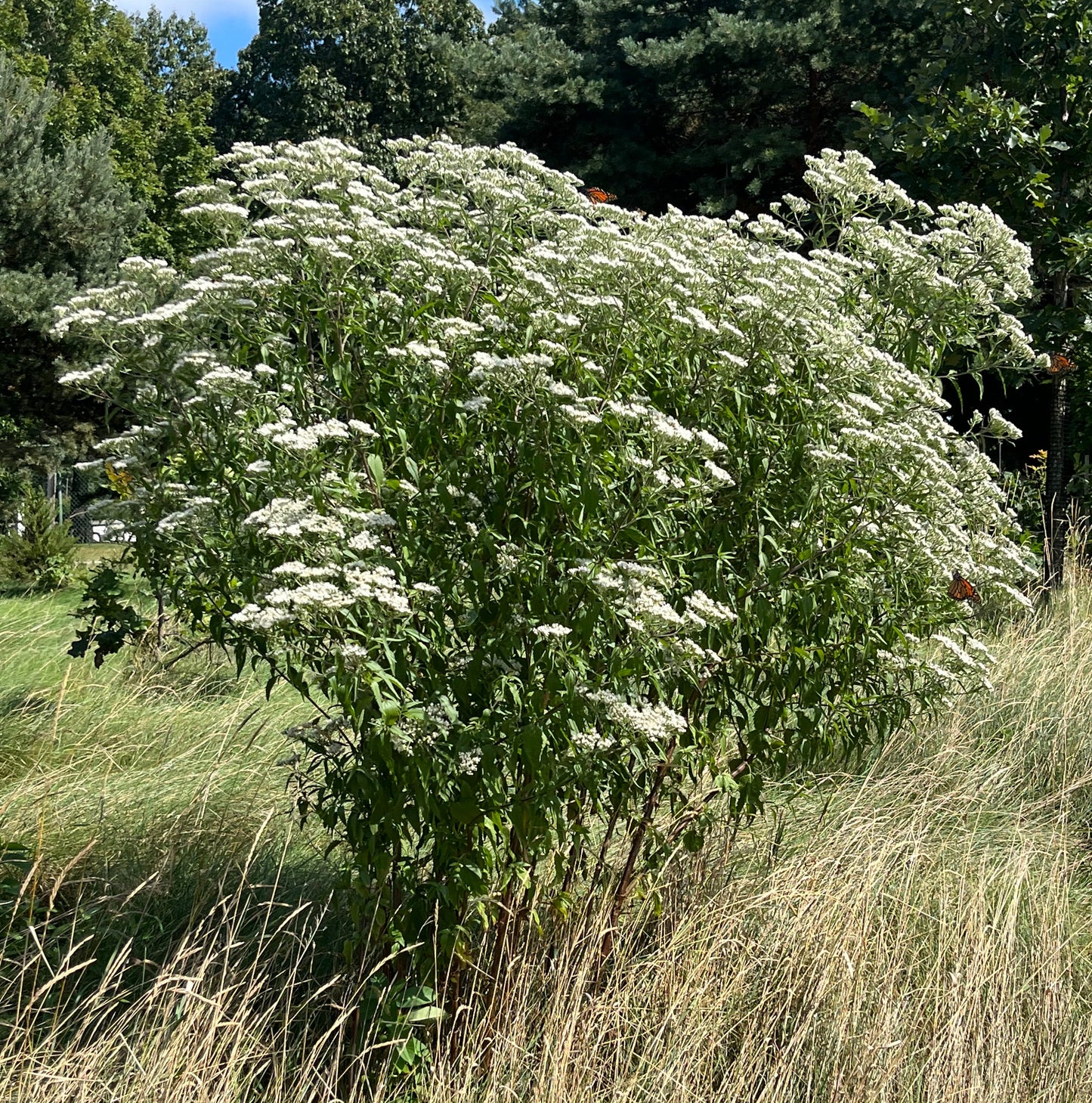Late boneset
Eupatorium serotinum
Eupatorium serotinum
Couldn't load pickup availability
Sun/shade: Full sun to part shade
Soil moisture: Dry to wet
Height: 3-6'
Flowering period: September
Deer resistance: High
In September, late boneset’s broad white flower clusters become a gathering place for pollinators. Here, one can observe the colorful locals – from hover flies to moths – foraging within inches of each other. Due to the plant’s abundance in disturbed, urban environments and its nutritional value for a diversity of organisms, it holds an important place within the food webs of our modern landscape.
Growing best in moderately moist soils and under full to partial sunlight, late boneset tolerates a range of conditions, especially when it comes to soil moisture. In NE Ohio, late boneset can be found in wetlands, meadows, abandoned fields, roadsides, and even gravel lots. In terms of form, the plant attains the shape of a large shrub within several years of planting. It spreads via short rhizomes to form a tight colony, and it will also deposit its light, fluffy seed on surrounding ground. Removing old flowers prior to seed formation will prevent seed dispersal. Frequent associates of late boneset which bloom at a similar time include heath aster, New England aster, grass-leaved goldenrod, wingstem, and tall ironweed.
Late boneset is a top nectar plant of migrating monarch butterflies, and it is not uncommon to observe multiple monarchs visiting a single plant simultaneously. Late boneset is also a favorite of the blue-winged wasp, a non-aggressive wasp that preys on lawn grubs. This wasp is quite handsome, with iridescent, dark blue wings, and two bright yellow spots separating its black upper body from its rufous hind portion.
Photos by Alyssa Zearley.



